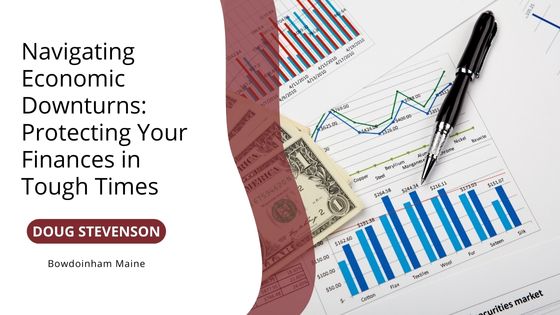Economic downturns are inevitable phases in the financial cycle that can create significant challenges for individuals and businesses alike. During these periods, unemployment rises, investments lose value, and consumer confidence wanes. While such times can be daunting, proactive financial strategies can help mitigate the impact and safeguard your finances. Here, we explore key approaches to protect your financial well-being during economic downturns.
Understanding Economic Downturns
An economic downturn, often characterized by a decline in GDP, higher unemployment rates, and reduced consumer spending, can stem from various causes, including financial crises, natural disasters, and geopolitical events. The effects can ripple across all sectors, making it crucial to adopt a strategic approach to financial management.
Build an Emergency Fund
Building and maintaining an emergency fund is one of the most important steps in preparing for economic downturns. An emergency fund is a savings buffer that covers three to six months of living expenses. This fund provides a financial cushion in case of job loss, medical emergencies, or unexpected expenses. To create an emergency fund, set aside a portion of your income regularly, aiming for a balance that covers your essential needs.
Diversify Your Income Streams
Relying on a single source of income can be risky during an economic downturn. Diversifying your income streams can provide financial stability. This might include freelancing, starting a side business, or investing in passive income opportunities such as rental properties or dividend-paying stocks. Diversification enhances your financial resilience and offers new opportunities for growth and security.
Reduce Debt
High debt levels can be particularly burdensome during economic downturns, as income may decrease while expenses remain constant. Prioritize paying down high-interest debt to reduce financial stress. Develop a debt repayment plan, focusing on paying off credit card balances, personal loans, and other high-interest obligations. Reducing debt not only improves your financial health but also frees up resources that can be allocated to savings and investments.
Create a Budget and Stick to It
A well-structured budget is essential for managing finances during tough times. Track your income and expenses meticulously, identifying areas where you can cut costs. Differentiate between essential and non-essential spending, and eliminate or reduce discretionary expenses. A budget helps you live within your means, avoid unnecessary debt, and allocate funds to savings and emergency needs.
Invest Wisely
While economic downturns can be challenging, they also present investment opportunities. Market volatility can make stocks more affordable, providing a chance to buy quality investments at lower prices. However, it is crucial to invest wisely and avoid impulsive decisions. Consider working with a financial advisor to develop a diversified investment strategy that aligns with your risk tolerance and long-term goals. Focus on investments with strong fundamentals and growth potential.
Stay Informed and Seek Professional Advice
Staying informed about economic trends and financial news is essential for making informed decisions. Review your financial situation regularly, assess the impact of economic changes, and adjust your strategies accordingly. Seeking professional advice from financial planners or advisors can provide valuable insights and tailored recommendations to protect and grow your finances during downturns.
Maintain a Positive Mindset
Economic downturns can be stressful, but maintaining a positive mindset is crucial. Focus on what you can control, such as managing your finances prudently and seeking opportunities for growth. Resilience and adaptability are key traits that can help you navigate challenging times successfully. Remember that downturns are temporary, and you can emerge stronger with careful planning and proactive measures.
Conclusion
Economic downturns pose significant challenges, but with proactive financial strategies, you can protect your finances and navigate tough times successfully. Building an emergency fund, diversifying income streams, reducing debt, creating a budget, investing wisely, staying informed, and maintaining a positive mindset are essential steps in safeguarding your financial well-being. By adopting these practices, you can enhance your financial resilience and secure a stable future, even in the face of economic uncertainty.

